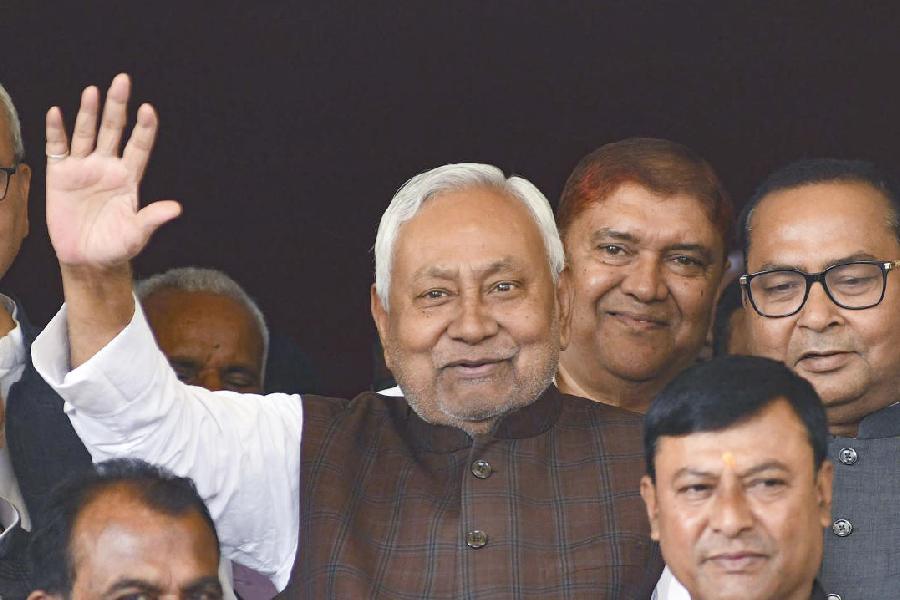Frankly speaking
Sir — Applying for leave is always tedious. How to approach one’s manager? Is he/she in a good mood to grant leave? Such thoughts often cloud employees’ minds. But Gen Z can be trusted to not give much thought to such filters. Recently, a tech entrepreneur shared on X a leave request from a Gen Z employee who wanted a 10-day leave to recover from a break-up. The post led to conversations about how Gen Zers are redefining official communication with their refreshing honesty. Discussing emotional struggles at the workplace is not a sign of weakness anymore. One should also not overlook the candidness of the manager in this case which made him approachable and made the employee comfortably share his emotional trauma instead of hiding behind fake excuses.
Ananya Dey,
Gurugram
Take note
Sir — Taking note of the alarming rise in stray dog bite incidents and rabies related deaths across India, the Supreme Court ordered the removal of stray dogs from public premises like educational institutions, hospitals, and bus and railway stations (“No strays in public places: SC”, Nov 8). The removal is intended to address public safety concerns. The court directed that stray dogs be rounded up, sterilised and then not released back into the same area.
However, simply removing dogs is not a long-term solution. The core problem lies in urban governance and waste management. Stray dogs largely depend on garbage dumps for food. Improving waste management is crucial to control their population.
Khokan Das,
Calcutta
Sir — The Supreme Court’s order to remove stray dogs from public places is in conflict with existing Animal Birth Control rules that mandate a ‘sterilize-vaccinate-return’ approach, which is considered a humane method for long-term population control and rabies eradication. The order also fails to take into account the immense logistical challenges of building shelters for stray dogs. The cost of building and maintaining thousands of shelters with proper veterinary care, food, and staff would be staggering.
Abhijit Roy,
Jamshedpur
Sir — Stray dogs in public places is always a matter of concern. Dog lovers may call the latest Supreme Court order directing the removal of strays from public places inhumane. The animal welfare organisations should abide by the order and take steps to make roads safer for children and the elderly.
D.P. Bhattacharya,
Calcutta
Sir — The stray dog population is on the rise in cities. Incidents of dog bites, rabies-related deaths and road accidents caused by strays have been rising as well. The authorities cannot turn a blind eye to this problem. It is hoped that the apex court’s order will mitigate this challenge to a great extent.
S. Sankaranarayanan,
Chennai
Sir — The behaviour of some stray dog lovers, especially when they become overly defensive and confrontational when informed about the problems caused by these animals, is problematic. The court has thus directed that strays will not be allowed back in their former neighbourhoods. Permitting the same would have frustrated the efforts at liberating the public places from strays.
Arati Abhishek Subbu,
Chennai
Sir — Stray dogs account for the significant burden of rabies-related deaths in India. The Supreme Court’s order to remove strays from public places has been rejected unanimously by animal rights activists and several animal welfare organisations (“Dog lovers decry ‘inhumane’ order”, Nov 8). India does not yet have the infrastructure to relocate thousands of stray dogs. But the animal welfare groups cannot be oblivious to the menace caused by strays.
Jahar Saha,
Calcutta
Sir — The execution of the Supreme Court’s order on strays will be nigh impossible. Stray dogs should be adopted by the locals of their areas as these animals render better security at night compared to human guards.
Sush Kocher,
Jaipur
Watershed moment
Sir — Mukul Kesavan’s perceptive article, “Zohran’s run” (Nov 9), rightly exposes the hypocrisy of the so-called moderate Centre, which cloaks right-wing prejudices in liberal civility. The phenomenon, however, points to a deeper malaise — the silence of the Left. If the Right is making inroads even into liberal democracies, it is because the Left has retreated from articulating a clear moral and economic vision.
Harsh Pawaria,
Rohtak, Haryana
Sir — The resounding victory of Zohran Mamdani in the New York City mayoral race is a watershed moment in global politics (“Popular choice”, Nov 7). What unfolded in Queens has now become a global conversation that speaks of democracy’s triumph. Mamdani’s win stands as a testament to the evolving idea of representation — carrying the cadence of immigrant stories, the faith of the unheard, and the strength of conviction over conformity. In an age of populism, his politics feels relevant and humane.
Sucharita Chaudhuri,
North 24 Parganas
Sir — It remains to be seen whether Zohran Mamdani can bring about a perceptible change in New York City for the betterment of the underprivileged. He talks about plurality being compromised in India under the Bharatiya Janata Party. One wishes he lasts his full term and influences young people to become better leaders.
Jayanta Sinha,
Calcutta
Sir — The election of Zohran Mamdani as the mayor of New York City has sent shockwaves across the American political landscape. The 34-year-old Democratic Socialist’s win has been hailed as a major breakthrough for the Left in a city that has been the centre of American capitalism.
Ranganathan Sivakumar,
Chennai










